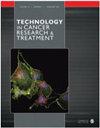Breast Cancer Prediction Based on Multiple Machine Learning Algorithms
IF 2.7
4区 医学
Q3 ONCOLOGY
引用次数: 0
Abstract
IntroductionThe incidence of breast cancer has steadily risen over the years owing to changes in lifestyle and environment. Presently, breast cancer is one of the primary causes of cancer-related deaths among women, making it a crucial global public health concern. Thus, the creation of an automated diagnostic system for breast cancer bears great importance in the medical community.ObjectivesThis study analyses the Wisconsin breast cancer dataset and develops a machine learning algorithm for accurately classifying breast cancer as benign or malignant.MethodsOur research is a retrospective study, and the main purpose is to develop a high-precision classification algorithm for benign and malignant breast cancer. To achieve this, we first preprocessed the dataset using standard techniques such as feature scaling and handling missing values. We assessed the normality of the data distribution initially, after which we opted for Spearman correlation analysis to examine the relationship between the feature subset data and the labeled data, considering the normality test results. We subsequently employed the Wilcoxon rank sum test to investigate the dissimilarities in distribution among various breast cancer feature data. We constructed the feature subset based on statistical results and trained 7 machine learning algorithms, specifically the decision tree, stochastic gradient descent algorithm, random forest algorithm, support vector machine algorithm, logistics algorithm, and AdaBoost algorithm.ResultsThe results of the evaluation indicated that the AdaBoost-Logistic algorithm achieved an accuracy of 99.12%, outperforming the other 6 algorithms and previous techniques.ConclusionThe constructed AdaBoost-Logistic algorithm exhibits significant precision with the Wisconsin breast cancer dataset, achieving commendable classification performance for both benign and malignant breast cancer cases.基于多种机器学习算法的乳腺癌预测
导言由于生活方式和环境的改变,乳腺癌的发病率近年来稳步上升。目前,乳腺癌是导致女性癌症相关死亡的主要原因之一,是全球公共卫生的重要问题。本研究分析了威斯康星州乳腺癌数据集,并开发了一种机器学习算法,用于准确地将乳腺癌分为良性和恶性。方法我们的研究是一项回顾性研究,主要目的是开发一种高精度的良性和恶性乳腺癌分类算法。为此,我们首先使用标准技术对数据集进行了预处理,如特征缩放和缺失值处理。我们首先评估了数据分布的正态性,然后考虑到正态性检验结果,我们选择了斯皮尔曼相关性分析来检验特征子集数据和标记数据之间的关系。随后,我们采用 Wilcoxon 秩和检验来研究各种乳腺癌特征数据分布的差异性。我们根据统计结果构建了特征子集,并训练了 7 种机器学习算法,具体包括决策树算法、随机梯度下降算法、随机森林算法、支持向量机算法、物流算法和 AdaBoost 算法。结论所构建的 AdaBoost-Logistic 算法在威斯康星州乳腺癌数据集上表现出了显著的精确性,对良性和恶性乳腺癌病例都取得了值得称赞的分类性能。
本文章由计算机程序翻译,如有差异,请以英文原文为准。
求助全文
约1分钟内获得全文
求助全文
来源期刊
CiteScore
4.40
自引率
0.00%
发文量
202
审稿时长
2 months
期刊介绍:
Technology in Cancer Research & Treatment (TCRT) is a JCR-ranked, broad-spectrum, open access, peer-reviewed publication whose aim is to provide researchers and clinicians with a platform to share and discuss developments in the prevention, diagnosis, treatment, and monitoring of cancer.

 求助内容:
求助内容: 应助结果提醒方式:
应助结果提醒方式:


